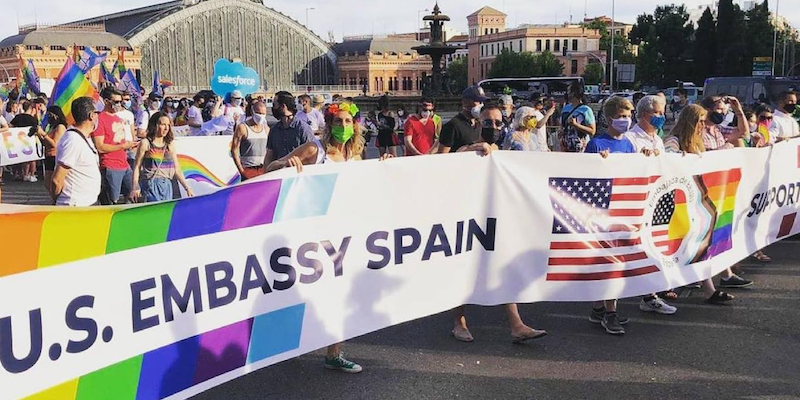Preparing to Advance Global LGBTQ+ Rights Through Diplomacy
As a non-binary graduate student and Foreign Service hopeful, I intend to build on a congressional internship and training at WIDA.

My original interest in the U.S. Foreign Service grew out of a desire to travel the world for a living. Then the Washington International Diplomatic Academy’s (WIDA) summer course, which I took this year, deepened my commitment to learning more about diplomacy and my passion for understanding what goes on in the “room where it happens” in political decision-making and negotiation.
My interest in international relations lies in advancing global LGBTQ+ rights and protections, promoting humanitarian and development assistance, managing conflict, and more generally, implementing foreign policy through diplomacy as the first resort. Some of these hold personal significance, while others are professionally intriguing and something for which I hope to build out a role in my future career.
At the same time I took the WIDA course, I did an internship on the majority staff of the House Foreign Affairs Committee. It helped me figure out where in foreign policy I would like to expand my portfolio and where my interest had subsided. Now that I have an understanding of the role that Congress plays in funding and overseeing foreign policy, I hope to direct my energy to policy implementation, rather than oversight and policy-making. What looms largest from my internship experience is my almost addictive passion for knowledge of humanitarian and development assistance and desire to work in conflict management.
During my time with the House committee, we received weekly reports on the conflict in Ethiopia’s Tigray region from the State Department and the U.S. Agency for International Development (USAID), including from officials on the ground in Tigray. They briefed us on the status of humanitarian convoys, the willingness of the warring parties to come to the negotiation table, and the implications on broader regional security and stability. Following State Department reporting requirements and congressional notifications has also given me valuable insight into the behind-the-scenes work of humanitarian and development assistance.
WIDA’s crisis simulations and those I’ve participated in at the U.S. Diplomacy Center, as well as the research I’ve conducted during my undergraduate studies, have opened my eyes to opportunities to work in conflict management and peace-building operations. After graduate school, I intend to pursue work at the State Department or in international organizations.
During my time on Capitol Hill, I had the opportunity to prepare member questions for the witnesses of Congress’ first-ever LGBTQ+ hearing. The work I contributed to in getting this hearing off the drawing board has been extraordinarily enriching. Although I’m only beginning to explore the State Department’s involvement in global social justice issues, I look forward to working more in this area.
As a non-binary Foreign Service hopeful in the political career track, I’ve reached out to gender-diverse diplomats in Washington, Nepal and Hong Kong, as well as the immediate past president of GLIFAA, the LGBTQ+ affinity group at State Department and other foreign affairs government agencies. I was encouraged by last week’s news that the department issued the first-ever U.S. passport with “X” for gender, a new policy for Americans who don’t identify as male or female.
Perhaps one day I’ll be the department’s coordinator for LGBTQ+ issues or director of the White House Gender Policy Council.
Jo Desmone is a graduate student at Georgetown University’s School of Foreign Service and a former trainee at WIDA.

